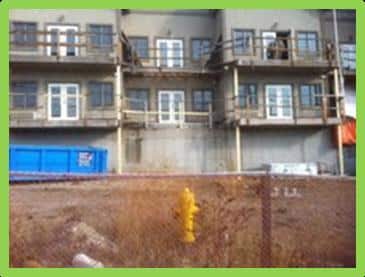Mar 7, 2013
After a fire in an apartment building fire inspectors identified 78 fire code violations and the owners have been fined $150,000 which is the maximum allowed under state law. Further the owners have been ordered to fix the issues by March 2 and pay the full fine but previous orders have been ignored.
(more…)
Mar 7, 2013
Multiple myeloma, a treatable but incurable plasma cell cancer, is one of six types of cancer the Ontario Professional Fire Fighters Association (OPFFA) is pushing to have added to workplace safety legislation. Also on the list are lung, testicular, breast, prostate and skin cancers.
(more…)
Mar 7, 2013
Fire departments could save 35 per cent and maintain current response times by switching to composite fire departments according to a study by Adam Found a University of Toronto economics PhD candidate. Fund’s study, entitled “Economies of Scale in Fire and Police Services in Ontario,” concludes full-time fire departments appear to be about 35 per cent costlier than mixed full-time and volunteer fire departments.
(more…)
Mar 7, 2013
Four people who wrote books about the Station Street Nightclub fire that killed 100 and injured 200 people are interviewed in this powerful article. John Barylick, author and an attorney, who represented fire victims in what would become a $176 million civil settlement said the fire was “The perfect storm was: illegal use of inappropriate pyrotechnics indoors, flammable wall coverings, overcrowding, and poorly or completely untrained staff” are the key points of failure.
(more…)
Mar 7, 2013
A University of Minnesota assistant professor, Lucy Dunne, is working to come up with a way firefighters can find their way around a smoke-filled environment without having to touch anything with their gloves.
(more…)
Sep 5, 2012
As a result of some major industrial fires in BC questions are being raised in the media about who is the Authority Having Jurisdiction (AHJ) for fire safety inspections.
In British Columbia municipalities are required by Section 26 (1) of the Fire Services Act (R.S.B.C.1996) to provide for a regular system of inspection of hotels and public buildings within their jurisdiction. The definition of municipality for the purposes of the Fire Services Act (FSA) includes villages, towns, cities, municipal districts and resort municipalities.
Regional Districts are not municipalities for purposes of the FSA so they are not required to provide fire inspection services.
(more…)
Jun 4, 2012
We recently responded to a request for information about the frequency of fire safety inspections required in BC by the Fire Services Act. Our client mentioned that the Fire Commissioners Office said it was up to the local jurisdiction to determine what the frequency of inspections should be and that did not necessarily mean annually.
That interpretation is correct but perhaps the explanation did not go far enough. Historically the Fire Services Act dictated the frequency of inspection and provided for intervals as frequently as quarterly and extending to annually depending on the occupancy classification of the building. At the request of the Fire Chiefs Association of BC the Act was changed a number of years ago to remove the mandated frequency of inspections allowing this to be determined at the local level.
(more…)

Jan 2, 2012
A fire department received a call to a fire in a building under construction. They arrived and connected to a hydrant located in front of the building. Unfortunately the hydrant, which was installed by the building owner, had not been connected to the water distribution system and was not in service at the time. There was no visible indication on the hydrant that it was out of service.
Another hydrant was available near the building but was located under some overhead power lines. The incident commander (IC) decided not to utilize this water supply due to the potential safety hazard of accidental contact with the power lines. The power pole supporting the wire was on fire.
(more…)

Jan 2, 2012
There is a lot of technical information available about the temperature generated by incandescent light bulbs. In general terms, the filament temperature inside an incandescent light bulb can exceed 2000 degrees Celsius. Considering the ignition temperature of paper is around 240 degrees Celsius and assuming oxygen for combustion is available the three components of the fire triangle are present so a fire could result.
(more…)

Dec 21, 2011
Witchcraft is often thought of as the use of magical powers, that witches are an agent of the devil and that witches use their powers to harm people and property. Witchcraft is one way of explaining human misfortune by a supernatural power or person in the community. Recently conclusions reached by fire investigators have been compared to witchcraft in that they are based on beliefs and myths that will not stand up to rigorous scientific scrutiny.
(more…)



